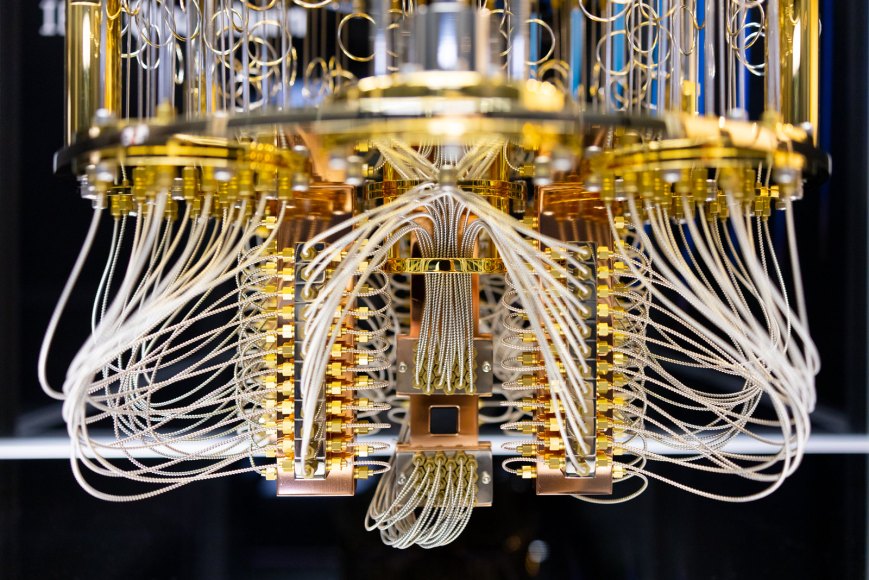Questions for ‘Here’s why scientists want a good quantum computer’

A quantum computer may look like a futuristic sculpture, but most of what you see is machinery used to keep the device a hair above absolute zero. The part that does the computing is the small rectangle near the bottom.
Satoshi Kawase, for IBM/IBM Research/Flickr (CC BY-ND 2.0 DEED)